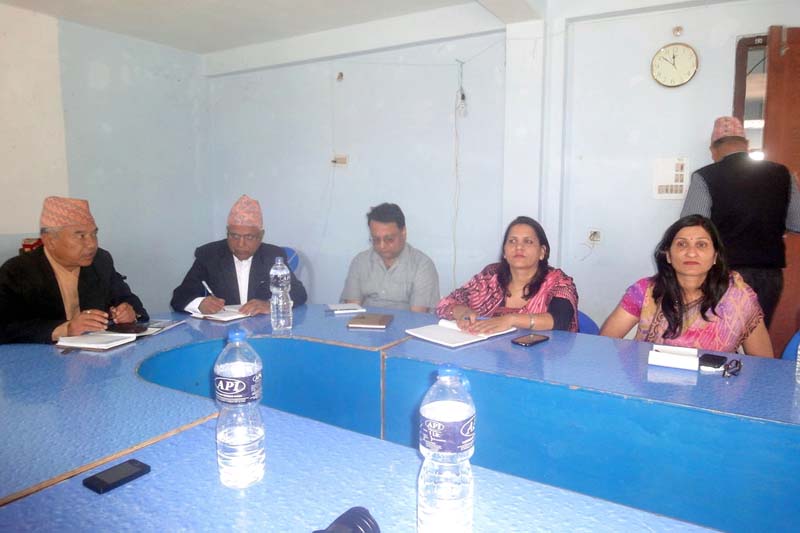Transitional justice body a victim of rift among its members
TRC member Madhabi Bhatta triggered a fresh controversy by sending three-point note to TRC Chairperson Surya Kiran Gurung, alleging lack of transparency in the body and accusing some of TRC members of involvement in activities against the TRC.
In her note, she pointed out TRC’s prolonged indifference to classify use of children in conflict as a serious rights violation case.
Gurung, however, claimed his actions were governed by the TRC Act and Regulations. He, however, admitted that he had refrained from sharing vital information with his colleagues, including Bhatta, after he found out that ‘sensitive information’ was being leaked to the media.
“We cannot share things if they go viral right after sharing,” Gurung said. “Some precaution has to be taken on sensitive information.”
Bhatta, a former journalist, told THT that she never shared such information with the media. She said she was even kept in the dark by TRC colleagues, including Chairperson Gurung, about some critical issues. She once said TRC was not a body whose works should be hidden from the media and it should be open to public scrutiny.
She was removed as TRC spokesperson after a heated argument with TRC members following a news titled, Political affinity reflected in TRC members’ work, which was published in The Himalayan Times on February 14.
She said she was kept in the dark by TRC chairman and its secretariat about the response of security forces and the Maoists when the TRC had asked them about their views on war-time strategies and commanders involved in major attacks.
“The decision to seek response from the security forces was taken by all members,” she said. “Unfortunately, when the response came, I was kept in the dark. This is not what the TRC Act authorises the chairman with.”
TRC watchers, however, caution such unwarranted conflicts within the transitional justice mechanism will not only hamper its performance, but also affect the work-plan, as well as affect the credibility of the mechanism.
However, conflict in the TRC is not a new phenomenon. Earlier, Bhatta had differences with Chairman Gurung and other members on a number of issues, including making field trips to some gross human rights violation sites and interacting with victims.
An insider, however, said confrontation in TRC was not a result of lack of transparency, but the conflict is just a reflection of their divergent political views. “Bhatta represents the opposition’s views, whereas others back ruling CPN-UML and Maoist Centre’s views.”
TRC’s five members were picked up by the Sushil Koirala-led government, while bearing in mind their political ideologies. Bhatta is considered close to the main opposition Nepali Congress party.
Another member, Shree Krishna Subedi, was appointed from the Maoist quota. Two members Leela Udashi and Manchala Jha are considered close to CPN-UML. However, Jha, sister of UML lawmaker Ranju Jha, claims she is neutral.
Despite being considered a relatively neutral figure, it’s alleged that Chairman Gurung also expresses views in line with the members close to the ruling parties.






